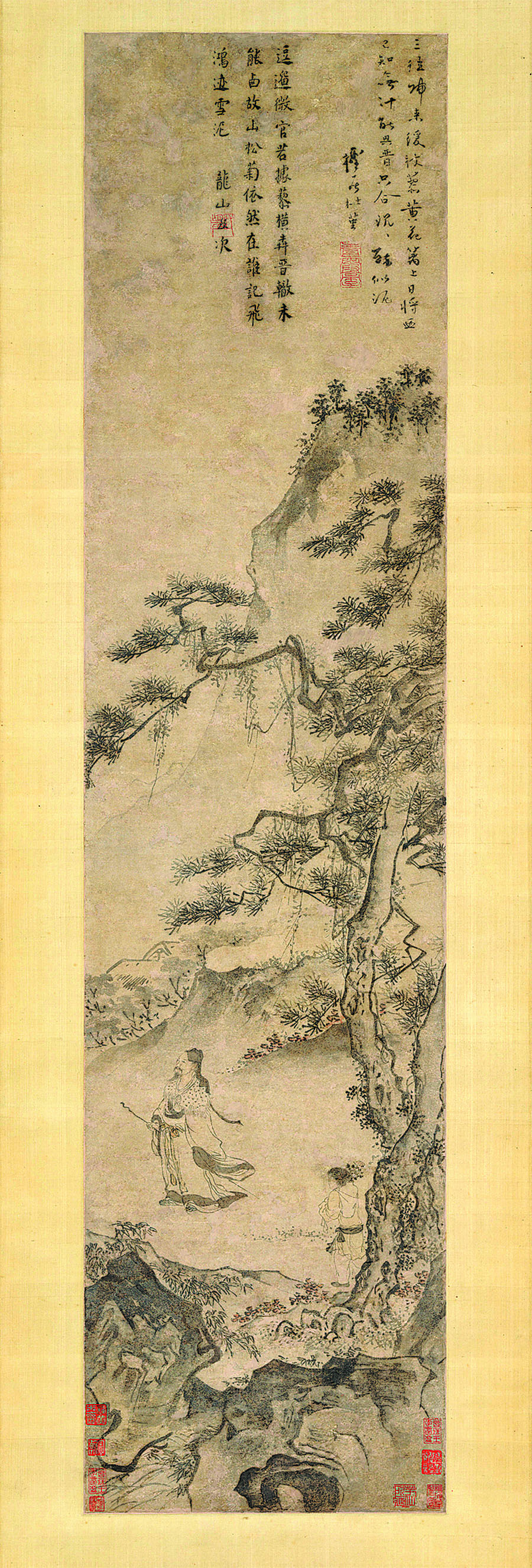Weight of early poetry felt through the ages
2025-06-10 21:05 CHINA DAILY
Occasionally, that inner experience is not meant to be shared, at least not publicly. This, Tan explains, gives rise to a fifth function of poetry, beyond the four outlined by Confucius. “Poetry can conceal, or more precisely, it allows one to conceal oneself, to become a spiritual hermit within the lines, seeking refuge in verse just as a recluse finds sanctuary in nature.“

A late 15th- to early 16th- century painting of Tao Yuanming enjoying chrysanthemums by Du Jin from the Metropolitan Museum of Art in New York.[Photo provided to China Daily]
One such figure is Tao Yuanming (365-427), a poet who renounced official life to spend his days in wine-accompanied seclusion: “Plucking chrysanthemums by the eastern fence; and gazing leisurely upon the southern mountains“, as he described in one of his most celebrated poems.
Tao practiced what he preached. He didn't merely imagine a life free from the burdens of officialdom; he lived it.
“He set a personal example of how a cultivated Confucian gentleman might conduct himself, in times of both power's favor and neglect,“ Tan says. “In doing so, he became, in my view, the most enduring cultural icon throughout China's history.“
That impact is evident in the countless poems and paintings produced since his time, both implicit and explicit in their allusions to him. Even Emperor Qianlong (1711-99) of the Qing Dynasty (1644-1911), in one of his painting inscriptions, spoke of retreating to special spaces within his imperial palace to escape the burdens of duty — directly acknowledging Tao's ideal.
“You really cannot engage with Chinese poetry without celebrating the idea of Tao Yuanming,“ says Joseph Scheier-Dolberg, curator of Chinese painting at the Metropolitan Museum of Art in New York.







